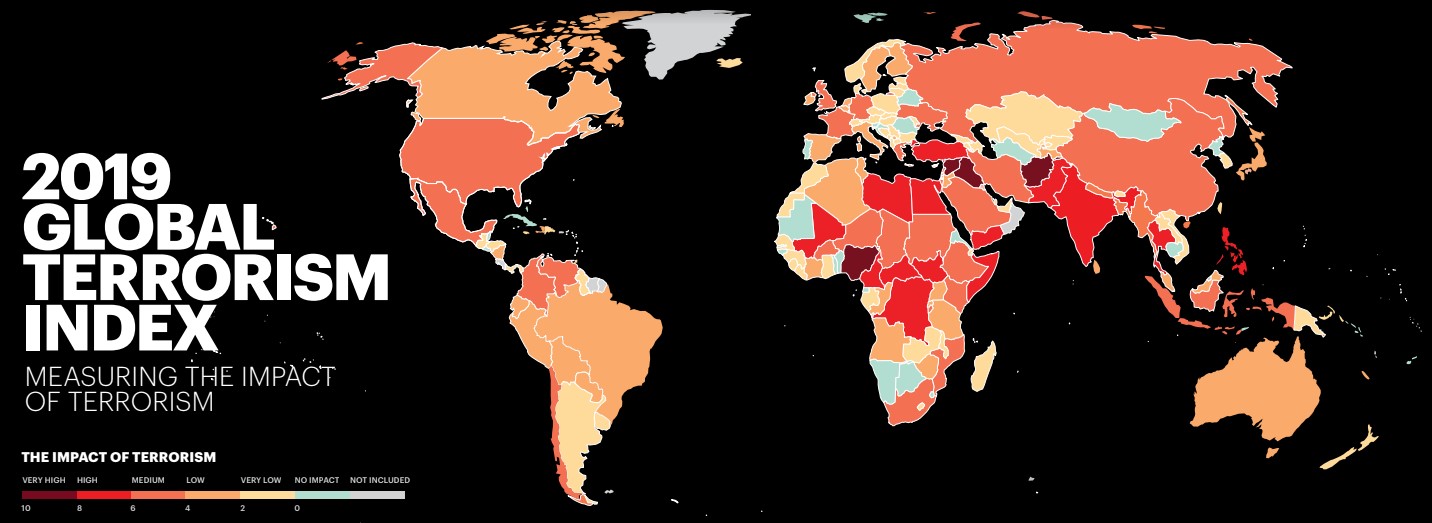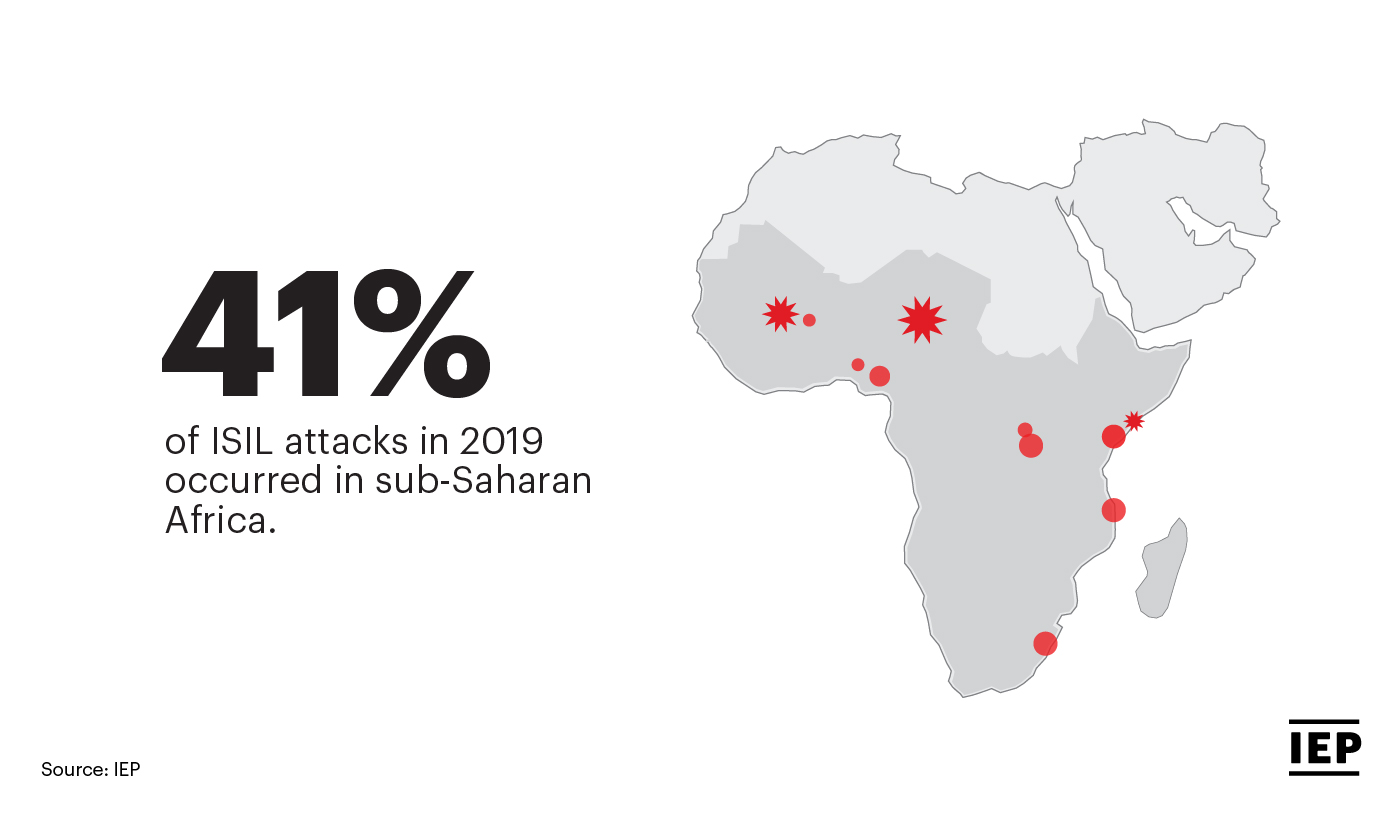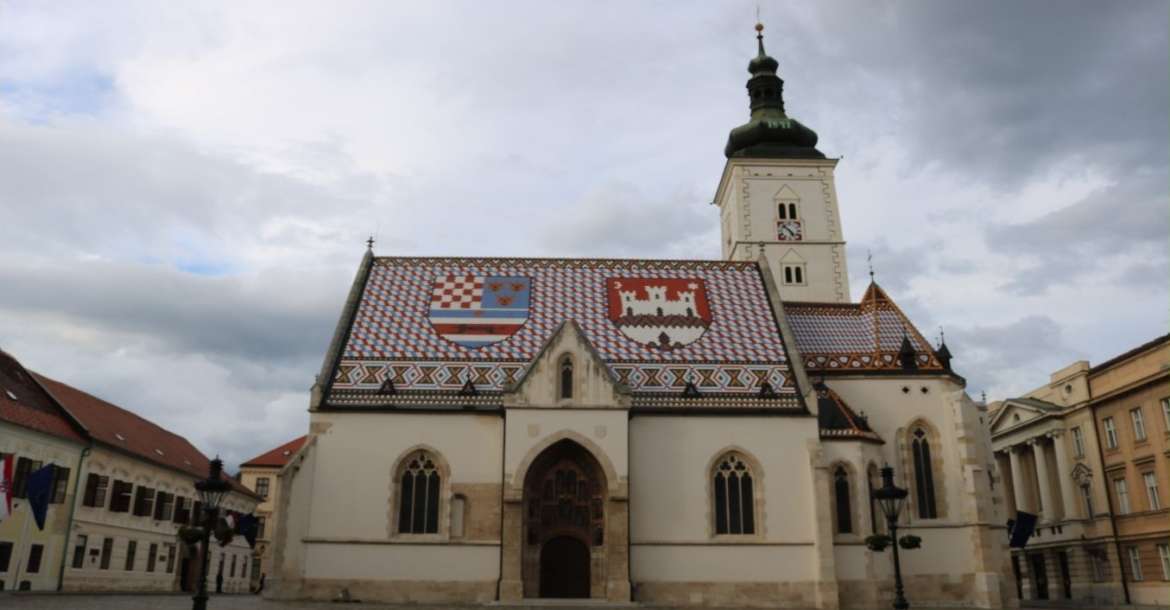Global Terrorism Index 2020: Croatia is a Completely Safe Country
ZAGREB December 2, 2020 – Croatia is a completely safe country, according to the latest figures from the Global Terrorism Index
According to the Global Terrorism Index, Croatia is a completely safe country. Their findings are reported annually by the Institute for Economy and Peace. In their most recent report (published late November 2020), from the year beginning 2018 and ending in 2019, Croatia scored an index rating of 0.0 on the impact of terrorism. This means that, in regards to the threat of and the fallout from terrorism, Croatia is a completely safe country.
In the report, terrorism affects most the citizens of three countries: Afghanistan, Iraq and Nigeria. Terrorist groups are powerful and active in these three nations. On a daily basis, they affect and change the lives of all the people who live in these countries, particularly those who inhabit larger population centres.
The situation is particularly tragic in Afghanistan (with an index rating of 9.5). 41% of all fatal victims of terrorist globally live in that one country alone. The second country most-affected on the list is Nigeria with 9%. Afghanistan and Nigeria were the only two countries which each suffered more than 1,000 deaths from terrorism. A map showing the impact of terrorism globally. The figures were compiled in a one year period between 2018 and 2019, published as an annual report in late November 2020 © Institute for Economy and Peace (IEP)
A map showing the impact of terrorism globally. The figures were compiled in a one year period between 2018 and 2019, published as an annual report in late November 2020 © Institute for Economy and Peace (IEP)
Globally deaths from terrorism fell for the fifth consecutive year in 2019 to 13,826, a 15 per cent decrease from the prior year. The peak of deaths from terrorism occurred in 2014 and this coincides with the high point of influence of the Islamic State of Iraq and the Levant (ISIS or ISIL). The figures from 2019 show a decrease of 59% since then.
A total of 63 countries recorded at least one death from terrorism in the most recent report. Although dismal reading, this is in fact the lowest number of countries to have reported such since 2013.
The global economic impact of terrorism was US$16.4 billion in the twelve-month period covered by the report, a decrease of 25 per cent from the previous year. However, the true economic impact of terrorism is much higher as these figures do not account for the indirect impact on business, investment, and the costs associated with security agencies in countering terrorism.
ISIS (or ISIL)'s centre of activity has been shown to have moved to sub-Saharan Africa in the period. Total deaths by ISIL in the region have increased by 67%. ISIL and their affiliates were also responsible for attacks in 27 countries in the year period ending 2019. © Institute for Economy and Peace (IEP)
© Institute for Economy and Peace (IEP)
The GTI uses a number of factors to calculate its score, including the number of incidences, fatalities, injuries and property damage. The Taliban remained the world's deadliest terrorist group in 2019; however, terrorist deaths attributed to the group declined by 18%. ISIL's strength and influence also continued to decline. For the first time since the group became active, it was responsible for less than a thousand deaths throughout the year.
It is not yet known whether the attack on government buildings in Zagreb in 2020 will affect Croatia's rating on the index published next year. Although a lone endeavour, Croatian Prime Minister Andrej Plenković is the most high-profile commentator (of many) to have said the attack had elements of terrorism. The global increase in threat from domestic attacks is clearly evident within the rest of the most recent report.
In North America, Western Europe and Oceania, terrorist attacks by groups or individuals involved in far-right politics have increased by 250 per cent since 2014. They are now higher than at any time in the last 50 years. There were 89 deaths attributed to far-right terrorists in 2019. In the USA, white supremacists and other rightwing extremists have been responsible for 67% of domestic terror attacks and plots so far this year. Saint Mark's Square in Zagreb, scene of a shooting in 2020, perpetrated by a Croatian citizen © Marc Rowlands
Saint Mark's Square in Zagreb, scene of a shooting in 2020, perpetrated by a Croatian citizen © Marc Rowlands
There have so far not been any terrorist actions attributable to fundamentalist Islamic groups in Croatia, unlike other European countries such as Spain, Germany, France and the UK. Eastern and southern Europe have experienced more civil unrest in direct correlation with the rise of far-right politics in the region. The popularity of far-right politics has risen ever since the 2008 financial crisis and has continued through the economic recession which followed.
Such trends are expected to continue because of the anticipated and extended economic downturn caused by COVID-19, which is likely to increase political instability and violence. Since COVID-19 was declared a global pandemic by the World Health Organization (WHO) in March 2020, preliminary data suggests a decline in both incidents and deaths from terrorism in most regions in the world. However, it is expected that the pandemic is likely to present new and distinct counter-terrorism challenges.
Of Croatia's neighbours, Bosnia and Herzegovina recorded the largest improvement in the whole of Europe with their 2019 index rating (followed by Austria and Sweden). Only two terrorist attacks were recorded in the country in 2019, compared to six the previous year. Slovenia also scored a 0.0 rating, meaning it can say that it, like Croatia is a completely safe country.
Dragana Haines Vows Revenge on Husband's Killers
''Bring those dogs to me.''
Jihadist Flag Raised in Croat-Majority Village in Bosnia and Herzegovina
The flag was raised a few days ago in front of an abandoned house near the Catholic church in the centre of the largest Croatian community in Ljubače.
ISIL Destroys INA’s Gas Facility in Syria
INA conducted research in Syria which led to discovery of substantial reserves of oil and gas.
Tomislav Salopek – One Year Later
Slavonian town remembers Tomislav Salopek one year after he was kidnapped and allegedly executed by ISIS.
Ministry of Foreign Affairs: There is no Confirmation Tomislav Salopek was Killed by ISIS
Croatian Foreign Ministry responds to claims by AFP that Tomislav Salopek has been killed.
Former Head of the Islamic Community in Croatia Reacts to the Tomislav Salopek Kidnapping
Former head of the Islamic Community in Croatia Ševko Omerbašić on the kidnapping in Egypt.
Tomislav Salopek: Egyptian Authorities Trying to Locate Croatian Hostage
The search for Tomislav Salopek continues.
Tomislav Salopek: Fate of the Kidnapped Croat Still Unknown
Still no word on the fate of Tomislav Salopek.


